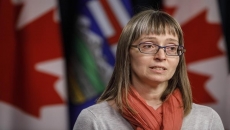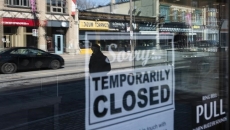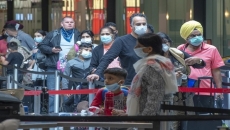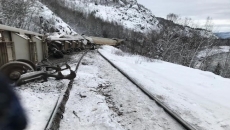An expected influx of COVID-19 vaccine deliveries beginning this week will test provincial deployment plans experts say should have been honed in the unwelcome lull that stalled inoculations across the country.
But whether doses remain in fridges or head straight into the arms of a winter weary public was still very much unclear for some who called on provinces to declare more detailed plans over how, when and where vaccines will be deployed.
Updated #COVID19 vaccine prioritization guidance from the National Advisory Committee on Immunization (NACI).
— Isaac Bogoch (@BogochIsaac) February 16, 2021
I suspect most provinces will not veer too far from this framework & we will see overlap of Stage 1 to Stage 2 as vaccines are⬆️available.
Link: https://t.co/uwjKzLelu0 pic.twitter.com/FOsBAGF9lK
"I think the government has a communication problem, personally. And that's basically (that they should) be very clear: 'This is what we've got, (and) this is how much we've got to work with, this is our priority for this week," says David A. Johnston, director of York University’s George Weston Ltd Centre for Sustainable Supply Chains.
"You don't want people to get disillusioned and stop listening to you."
Regional outbreaks, emerging variants and a gradual reopening in various parts of the country have added pressure on provinces tasked with rectifying delays blamed primarily on slowed shipments from overseas manufacturers.
Last week, Prime Minister Justin Trudeau put Canadians on notice for "the big lift" – a dramatic increase in deliveries over coming weeks.
That includes four million doses of the Pfizer-BioNTech vaccine and two million from Moderna by the end of March, and 10.8 million Pfizer doses between April and June – 2.8 million more than originally planned, said Procurement Minister Anita Anand.
That calculation hinges on the ability of immunizers to extract six doses instead of five from each vial, which requires a specific type of "low dead-volume" syringe that traps less vaccine around the needle after an injection. Anand has said Canada had ordered 64 million of the devices.
Acquiring such tools is just one of many details public health officials across the country have been hammering out amid the unexpected slowdown, says Barry Pakes, an assistant professor at the Dalla Lana School of Public Health at the University of Toronto.
Pakes, who's held leadership positions in several Ontario health units, including during the pandemic, says the unwelcome delay offered vital time for officials to tackle a litany of tasks: hire and train staff, prepare storage facilities, stockpile equipment, arrange transport and drivers, and test new digital information systems that will track inventory and administered doses.
Although COVID-19 vaccination promises to be a gargantuan task, it's not entirely unknown territory, he says.
"We have templates that we use when we do big hepatitis A outbreak immunizations of 20,000 people, so we know exactly how to do this. It's just a matter of it's at a different scale," says Pakes, who expected Ontario would be able to keep pace with escalating shipments.
Ontario's health ministry says it's been piloting an online site for vaccine appointments since January and expects to expand its use in coming weeks. Meanwhile, some local public health units have begun preparing mobile vaccination clinics.
Last week, Manitoba said it had enlisted enough immunizers to deliver more than 15,000 doses per day, and had authorized more categories of workers to administer doses, including optometrists, dental hygienists, massage therapists and more.
"We have folks who are waiting in the wings, who are eager to get involved, who are asking for shifts," Dr. Joss Reimer, medical lead of the province's vaccine task force said last week.
"We really look forward to the day when we can start to have all of those folks working shifts ... and as soon as the doses are here, we will start providing them."
British Columbia's provincial health officer has said mass vaccination clinics could "fully start" in March, once the province worked through delays to vaccinating Phase 1 priority groups.
Dr. Bonnie Henry assured people older than 80 that they will know when it's their turn.
"In the coming days and weeks, you will receive the information you need to know: where your clinic will be or how you will receive vaccine," said Henry. "We are working on the details in every community across the province."
Johnston says transparency is important to manage public expectations and be realistic about what’s to come.
"We're going to have a lot of shipments coming in at one time. So you're not going to see a slow drip. It's going to be like an exponential increase in the amount of shipments. And then you have to ride that wave with the capacity to very quickly get that into people's arms."






